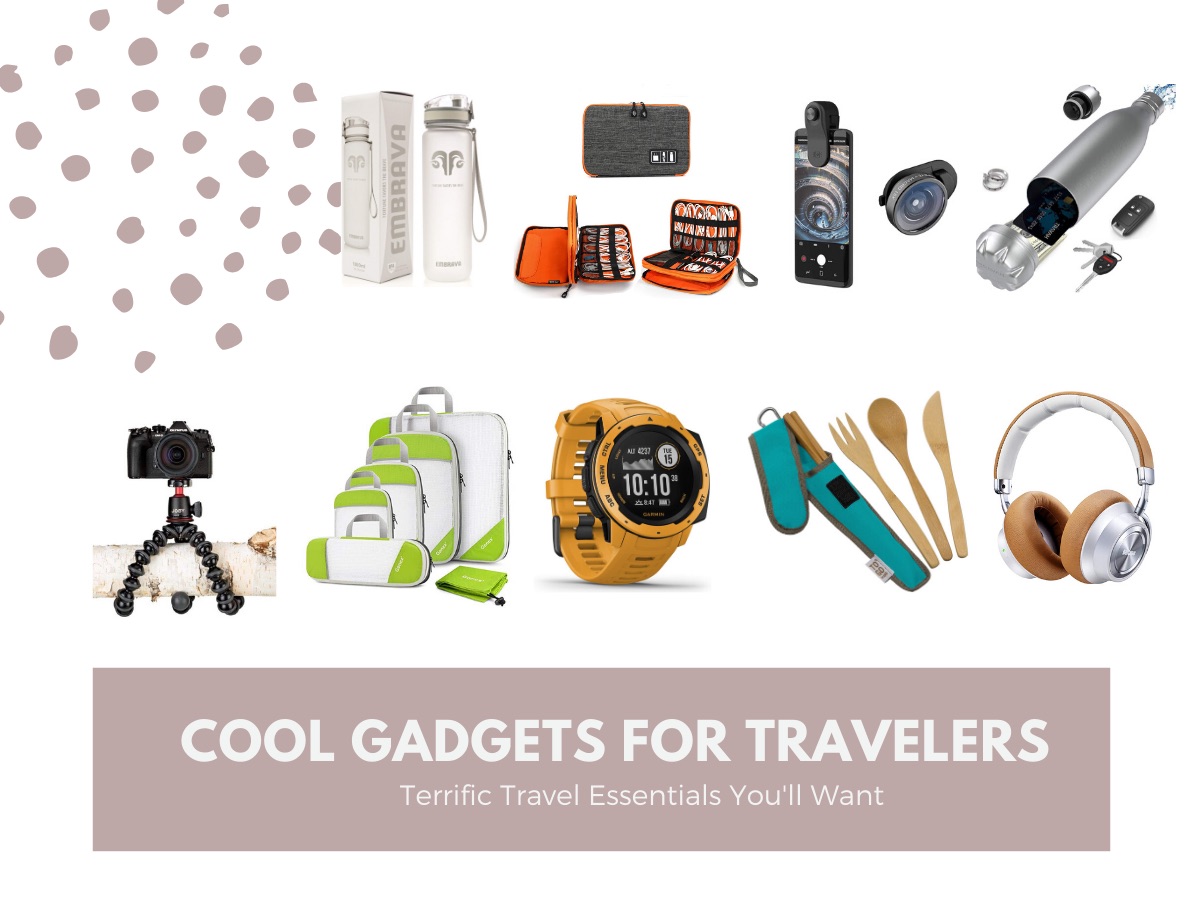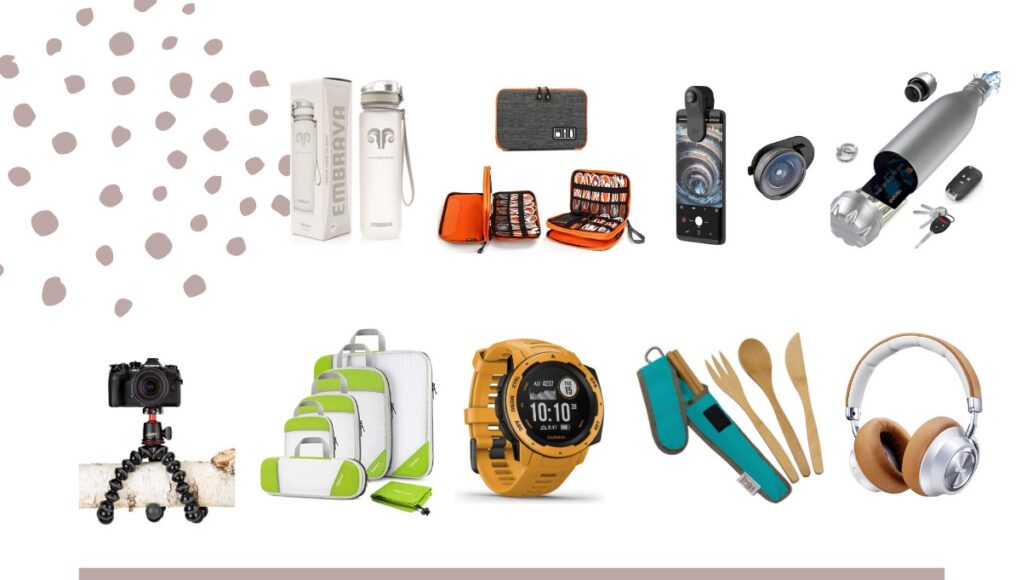Portable Gadgets That Make Travel Easier are revolutionizing the way we explore the world, making each journey smoother and more enjoyable. As travel becomes an essential part of our lives, the role of compact and efficient gadgets cannot be underestimated. From innovative chargers to versatile organizers, these tools enhance our travel experience, ensuring convenience and simplicity at every step.
With technology advancing rapidly, a plethora of portable gadgets has emerged that cater specifically to the needs of travelers. These devices not only save space in your luggage but also provide functionality that can make a significant difference when you’re on the move. Whether you are a frequent flyer or an occasional vacationer, having the right gadgets can dramatically transform your travel routine.
In today’s fast-paced world, the importance of effective communication cannot be overstated. Whether it’s in a professional setting or personal interactions, the way we convey our thoughts and ideas plays a critical role in the outcomes we achieve. While traditional communication methods are still relevant, the emergence of digital communication has transformed how we connect with one another. In this article, we will explore various aspects of communication, including its significance, the evolution of communication methods, and tips for enhancing communication skills.At its core, communication is the process of sharing information, thoughts, or feelings between individuals or groups.
This can take many forms, including verbal, non-verbal, written, and visual communication. Each type serves a unique purpose and can be effective in different contexts. For instance, face-to-face conversations allow for immediate feedback and emotional connection, while emails and texts offer convenience and the ability to communicate across distances. One of the foremost reasons effective communication is vital is its impact on relationships.

Whether in the workplace or at home, clear communication fosters understanding and minimizes conflicts. For example, in a business environment, managers who communicate expectations clearly are more likely to have teams that meet their goals. On the other hand, vague messages can lead to confusion, mistakes, and frustration. Furthermore, strong communication skills are essential for leadership. Leaders often need to inspire and motivate their teams, which requires a clear and compelling way of expressing their vision.
A leader who can articulate their thoughts effectively can rally support and drive initiatives forward. Conversely, leaders who struggle to communicate may find it challenging to achieve their objectives.The evolution of communication methods has been astonishing, especially in recent decades. From the invention of the telephone to the rise of the internet, each advancement has reshaped how we connect. The traditional face-to-face conversation has evolved into video calls, allowing individuals to interact visually even when they are miles apart.
Social media platforms have further revolutionized communication, enabling individuals to share their thoughts with a global audience in real time.However, this digital shift has not come without its challenges. The rise of digital communication has led to a decrease in face-to-face interactions, which can diminish the quality of relationships. Non-verbal cues, such as body language and tone of voice, are often lost in text-based communication.
This can result in misunderstandings and misinterpretations. Therefore, while digital communication offers convenience, it is essential to be mindful of its limitations.Improving communication skills is a valuable endeavor that can greatly enhance both personal and professional relationships. Here are several strategies to consider:
1. Active Listening
This is one of the most critical aspects of effective communication. Active listening involves fully concentrating on what the speaker is saying rather than merely waiting for your turn to speak. It requires engaging with the speaker, asking clarifying questions, and providing feedback. By demonstrating that you value the other person’s perspective, you can foster a more open and productive dialogue.
2. Clarity and Conciseness
When conveying information, aim to be clear and concise. Avoid jargon or complex language that may confuse the listener. Instead, use straightforward language that gets your point across effectively. This is especially important in professional settings, where time is often limited, and clarity is paramount.
3. Non-Verbal Communication
Be aware of your body language and how it affects your messages. Non-verbal cues, such as facial expressions, eye contact, and gestures, significantly impact how your words are received. For instance, maintaining eye contact can convey confidence and interest, while crossed arms may signal defensiveness or disinterest.
4. Empathy
Understanding and acknowledging the feelings of others can profoundly enhance communication. Empathy allows you to connect on a deeper level and can help de-escalate conflicts. When someone feels heard and understood, they are more likely to be receptive to your message.
5. Feedback
Providing and receiving constructive feedback is an essential part of communication. It helps individuals grow and improve while also fostering a culture of open dialogue. When giving feedback, be specific and focus on behaviors rather than personal attributes. For instance, instead of saying, “You did a bad job,” you could say, “I think there were some missed details in your report.”
6. Adaptability
Different situations and audiences require different communication styles. Being adaptable means recognizing the context and adjusting your approach accordingly. For example, the way you communicate with colleagues may differ from how you talk to clients or friends. Being adaptable helps you connect with various people more effectively.As we navigate our increasingly interconnected world, it is crucial to remain aware of the evolving landscape of communication.
The COVID-19 pandemic has further accelerated the shift towards virtual interactions, making it more important than ever to refine our communication skills. While technology can facilitate connections, it is vital to remember the value of genuine human interaction.In conclusion, effective communication is a foundational skill that impacts every aspect of our lives. By understanding the significance of communication, embracing the evolution of methods, and actively working to improve our skills, we can foster better relationships, enhance our professional effectiveness, and navigate the complexities of modern interactions.
Ultimately, the ability to communicate effectively can open doors to new opportunities and deepen our connections with others. So, whether you are giving a presentation, having a difficult conversation, or simply chatting with friends, remember the power of your words and the impact they can have.
Frequently Asked Questions: Portable Gadgets That Make Travel Easier
What types of portable gadgets are best for travel?
Some popular options include portable chargers, travel organizers, noise-canceling headphones, and compact cameras.
Are portable gadgets worth the investment?
Yes, they can save you time and stress, making your travel experience much smoother and more enjoyable.
How do I choose the right gadgets for my travels?
Consider your travel style, the destinations you’ll visit, and specific needs like charging capabilities or storage solutions.
Can portable gadgets help with communication while traveling?
Absolutely! Many gadgets, such as translation devices and portable Wi-Fi hotspots, can enhance communication and connectivity.
What should I look for in a travel charger?
Look for features like multiple USB ports, fast charging capabilities, and compatibility with various devices.






